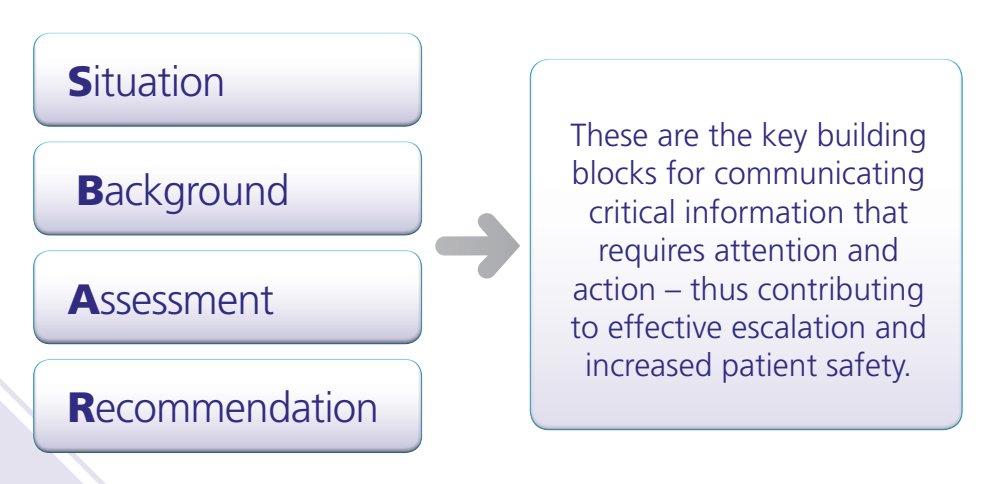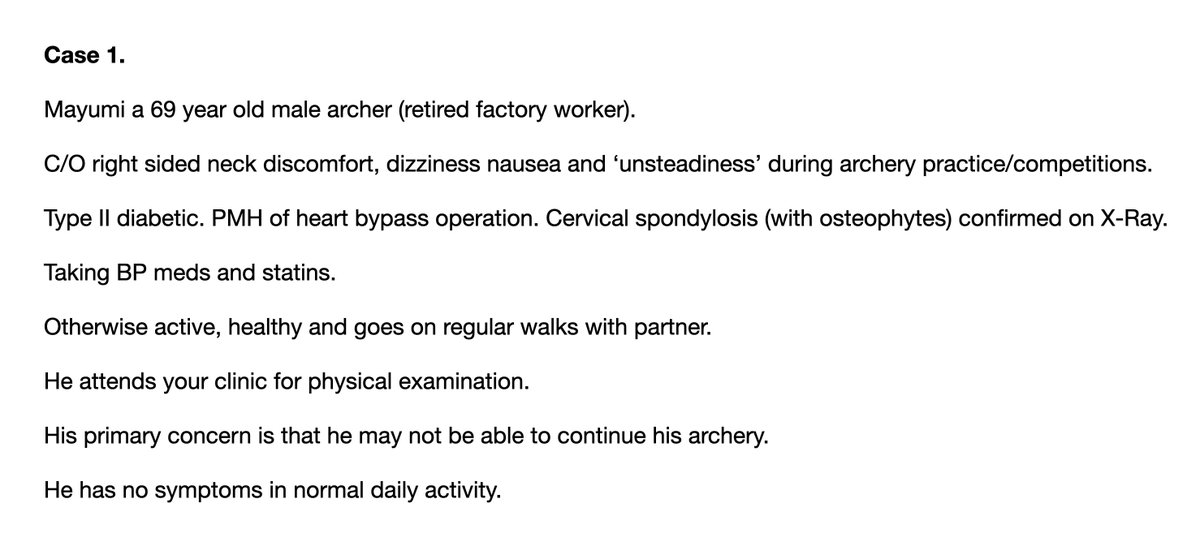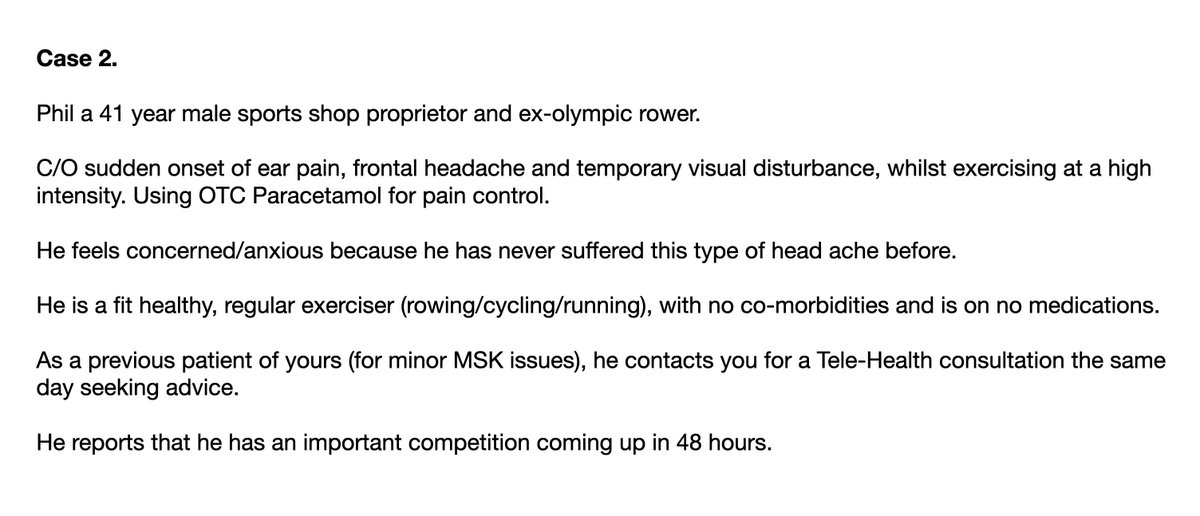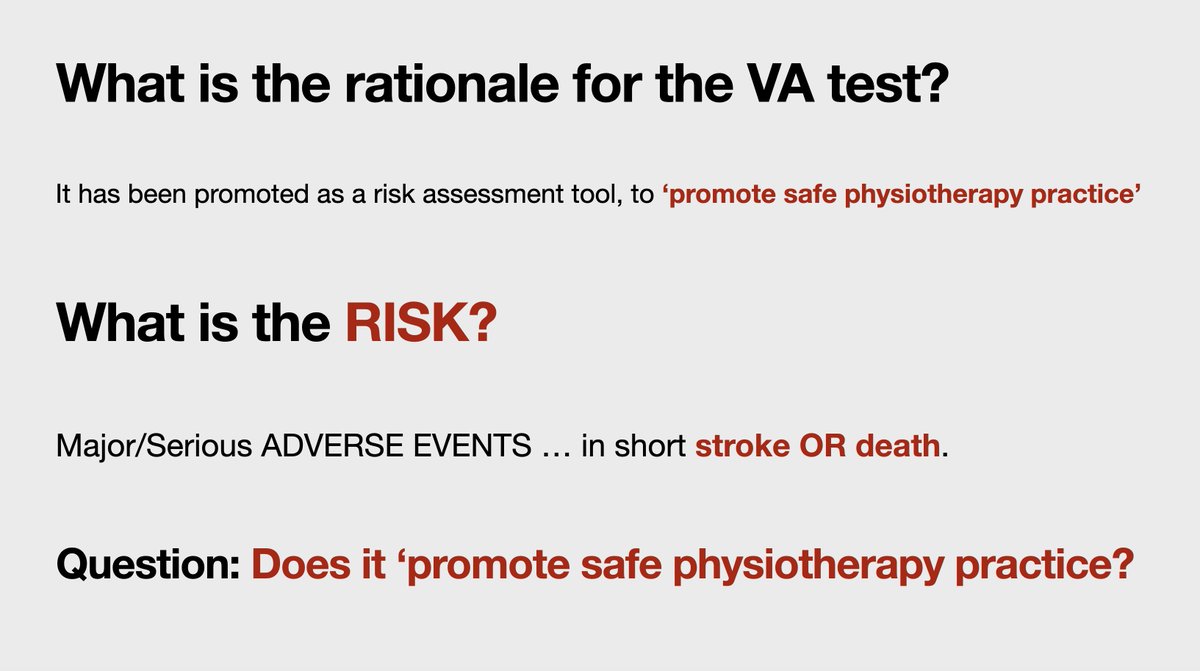
6 reasons to take #BloodPressure in the MSK physiotherapy clinic.
A thread to ponder over Easter 🧵
#Haemodynamics #Physio #PhysicalTherapy #Hypertension
1/
A thread to ponder over Easter 🧵
#Haemodynamics #Physio #PhysicalTherapy #Hypertension
1/
Reason 1.
Vital signs tell you lots about the patient’s general health.
The 2 minutes it takes to check someone’s blood pressure may impact directly on your clinical reasoning and subsequent management.
2/
Vital signs tell you lots about the patient’s general health.
The 2 minutes it takes to check someone’s blood pressure may impact directly on your clinical reasoning and subsequent management.
2/

Reason 2.
High blood pressure is generally asymptomatic, so you wouldn’t know if the person sitting in front of you might be hypertensive.
... Unless you take the time to check.
3/
High blood pressure is generally asymptomatic, so you wouldn’t know if the person sitting in front of you might be hypertensive.
... Unless you take the time to check.
3/

Reason 3.
Checking blood pressure may form part of your risk assessment, for example with a patient reporting ?MSK symptoms - chest/shoulder/arm pain/headache/orofacial symptoms/dizziness/falls etc.
Here is a great example via @ClementsCharl96 👀👇
4/
Checking blood pressure may form part of your risk assessment, for example with a patient reporting ?MSK symptoms - chest/shoulder/arm pain/headache/orofacial symptoms/dizziness/falls etc.
Here is a great example via @ClementsCharl96 👀👇
https://twitter.com/ClementsCharl96/status/1514331698200289286?s=20&t=ujOoJnzjllz2wU-E4F33Pg
4/
Reason 4.
Checking blood pressure may be a route into ‘making every contact count (MECC)’, and forming the basis of your conversation with the patient around lifestyle, diet, exercise and physical activity etc.
makingeverycontactcount.co.uk
5/
Checking blood pressure may be a route into ‘making every contact count (MECC)’, and forming the basis of your conversation with the patient around lifestyle, diet, exercise and physical activity etc.
makingeverycontactcount.co.uk
5/
Reason 5.
Well, you were probably going to offer some exercise interventions as part of your management ... weren’t you?
It is worth considering that most gyms implement BP and other health checks, before allowing clients to embark on an exercise programme.
6/
Well, you were probably going to offer some exercise interventions as part of your management ... weren’t you?
It is worth considering that most gyms implement BP and other health checks, before allowing clients to embark on an exercise programme.
6/

Reason 6.Covid19.
In short, there is emerging evidence to suggest that the Covid19 pandemic (for a range of reasons) may be linked to CVD & new onset hypertension.
You owe it to your patients to check their BP, these are extraordinary times.
frontiersin.org/articles/10.33…
7/
In short, there is emerging evidence to suggest that the Covid19 pandemic (for a range of reasons) may be linked to CVD & new onset hypertension.
You owe it to your patients to check their BP, these are extraordinary times.
frontiersin.org/articles/10.33…
7/
OK, that's all very well ... 🤷♂️🤷
BUT what do I do if I find someone with an abnormally high BP in the clinic?
Check it ... and check it again.
If you are still concerned, you can act by making an SBAR referral. 👀👇
england.nhs.uk/improvement-hu…
8/
BUT what do I do if I find someone with an abnormally high BP in the clinic?
Check it ... and check it again.
If you are still concerned, you can act by making an SBAR referral. 👀👇
england.nhs.uk/improvement-hu…
8/

• • •
Missing some Tweet in this thread? You can try to
force a refresh







